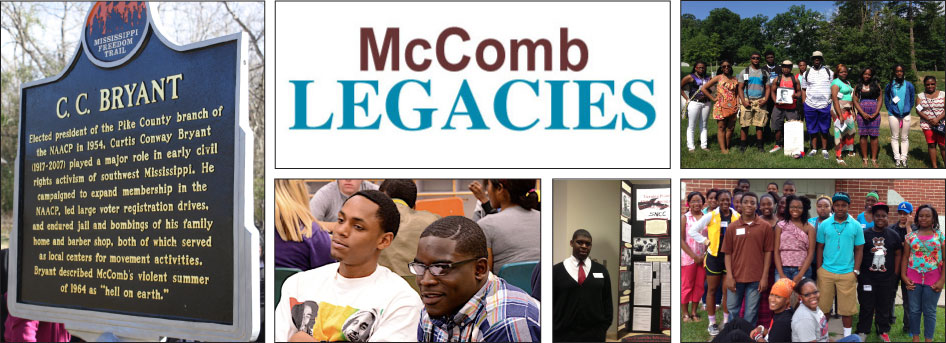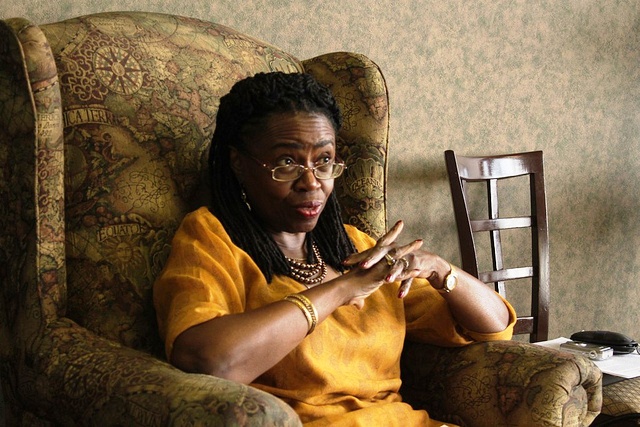Trips and Tours
Mississippi Delta Freedom Project
McComb was honored to send five students and one teacher to participate in the 5th Annual Mississippi Freedom Project Tour and Speaker Series: Lessons and Legacies of Civil Rights Leader Fannie Lou Hamer in mid-September.
The group from McComb experienced an unforgettable two days of panel presentations, tours, interviews, and meetings with other youth. Here is a description of the convening following by some reflections by McComb students.
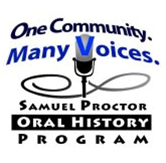 A research team of 12 University of Florida students worked with the Sunflower County Civil Rights Organization to conduct oral history interviews in the historic region. The team focused on uncovering the movement’s origins, analyzing its impact and documenting contemporary legacies in a region that gave birth to what’s considered the most important independent political party in U.S. history, the Mississippi Freedom Democratic Party.
A research team of 12 University of Florida students worked with the Sunflower County Civil Rights Organization to conduct oral history interviews in the historic region. The team focused on uncovering the movement’s origins, analyzing its impact and documenting contemporary legacies in a region that gave birth to what’s considered the most important independent political party in U.S. history, the Mississippi Freedom Democratic Party.
A highlight of the 2012 research trip included a public history symposium at Delta State University in Cleveland, Miss. Each year, the panel features movement veterans, historians, educators and area youth to discuss social movement organizing, civic engagement and lessons that can be drawn from civil rights organizations such as the Student Nonviolent Coordinating Committee (SNCC). This year’s panel includes Bill Chandler, a veteran of the United Farm Workers and director of the Mississippi Immigrant Rights Alliance, and John Due, an attorney who worked in voter registration in Mississippi and who played an important role in the passage of the 1964 Civil Rights Act and the 1965 Voting Rights Act.
Each of the interviews collected during this research trip will be deposited in a publicly accessible archive at the University of Florida and with the Sunflower County Civil Rights Organization in Mississippi for educational use.
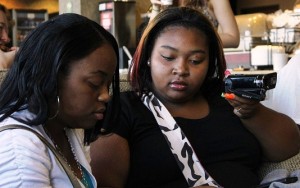 As Gabrielle Washington explained: “Today, the McComb Legacies students and I listened to Mr. John Due tell us about himself and his point of view about the Civil Rights Movement and the Voting Right Struggle. I also found out that my great aunt was a close friend of his. She actually drove him around town and helped him out a lot. That was a touching moment for him to discuss because he shed a few tears while he was talking about her. It really shocked me to know my very own great aunt was involved in the Civil Rights Movement. I didn’t know anyone in my family was a part of history. Next, we toured Amzie Moore’s home. Then, we went to Mount Bayou Hospital where Fannie Lou Hamer died.
As Gabrielle Washington explained: “Today, the McComb Legacies students and I listened to Mr. John Due tell us about himself and his point of view about the Civil Rights Movement and the Voting Right Struggle. I also found out that my great aunt was a close friend of his. She actually drove him around town and helped him out a lot. That was a touching moment for him to discuss because he shed a few tears while he was talking about her. It really shocked me to know my very own great aunt was involved in the Civil Rights Movement. I didn’t know anyone in my family was a part of history. Next, we toured Amzie Moore’s home. Then, we went to Mount Bayou Hospital where Fannie Lou Hamer died.
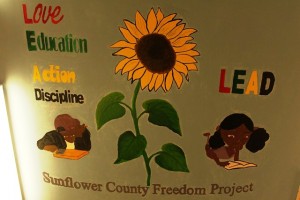 “Later on, we visited Sunflower County Freedom Project. While we were there we got the chance to interact with new people and get to know them. The students performed a short talent show. A few of us had a chance to show them our talent as well. We enjoyed mingling with them today. This experience helps us open our eyes to appreciate the people who put up a fight to be able to vote once we turn eighteen. I can truly say I am glad that I was able to be a part of this experience and we really enjoyed everyone. This has inspired us to take action in McComb. We want to go around McComb and encourage people in the community to get registered to vote. We can do this with confidence because we know the story behind our freedom.”
“Later on, we visited Sunflower County Freedom Project. While we were there we got the chance to interact with new people and get to know them. The students performed a short talent show. A few of us had a chance to show them our talent as well. We enjoyed mingling with them today. This experience helps us open our eyes to appreciate the people who put up a fight to be able to vote once we turn eighteen. I can truly say I am glad that I was able to be a part of this experience and we really enjoyed everyone. This has inspired us to take action in McComb. We want to go around McComb and encourage people in the community to get registered to vote. We can do this with confidence because we know the story behind our freedom.”
Ember Patterson wrote: “This experience was very beneficial. It was beneficial because we learned how hard it was just to be able to vote and be a black person during that time. I think that every student should receive this opportunity. I wish the school district would allow more opportunities for us instead of stressing us about passing state tests. We need to be inspired like this.”
Dominique Taylor wrote: “The first day we arrived in Cleveland, we went to Delta State University to a conference where I learned that some of the panelists knew Ms. Fannie Lou Hamer personally. The panelists explained to us that Ms. Hamer was very dangerous to the country because she was so brave and she was the type of woman that will not let anyone turn her down. One of the parts at this conference that stuck out to me was when Ms. Gwendolyn [Zoharah Simmons] starting stressing and talking about how voting is very important for the teens that are registered to vote.”
